Will the Chinese government save Evergrande?
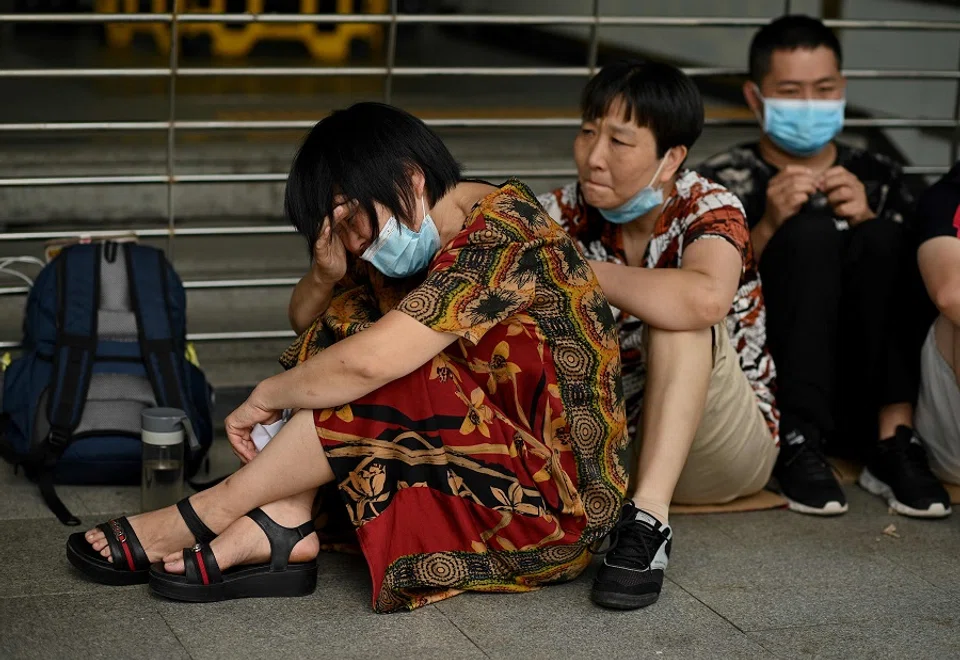
Evergrande Group, headquartered in Shenzhen and now the world's most indebted property developer, looks like it's on its last legs. But Chinese officials are not bailing the company out yet, having merely said that the impact "remains to be seen". (NB: Nonetheless, the People's Bank of China (PBOC) injected 90 billion RMB of short-term liquidity in the banking system on 17 September amid volatility over fears of Evergrande's debt crisis.)
On 13 September, approximately 100 disgruntled investors gathered at Evergrande's headquarters to demand repayments of loans and financial products. They are worried that the company may go bust by the end of the year and all their investments would go down the drain. Among the protesters was an employee from Evergrande Wealth Management, a wealth management company under Evergrande Group. He claimed that he and his relatives had invested a total of 1.1 million RMB (S$230,000) with the company.
Fears of Evergrande case triggering a subprime crisis in China
Evergrande's debt woes are no longer news. This time, two of its subsidiaries failed to uphold guarantee obligations for 934 million RMB worth of wealth management products since 8 September. It was also reported that the total amount of guarantee obligations that it had defaulted on for all of its matured products was as high as 40 billion RMB. Investors were also angry at an Evergrande senior executive for paying himself in advance, effectively emptying the coffers of any remaining profits.
Just how big is Evergrande's debt? 1.97 trillion RMB, as of 30 June. This is roughly the same as South Africa's GDP in 2020, or nearly 2% of China's GDP. At present, hundreds of housing projects remain unfinished. Behind these housing projects are countless infuriated vendors, as well as property owners who have emptied out their life savings to buy these units that lie unfinished.
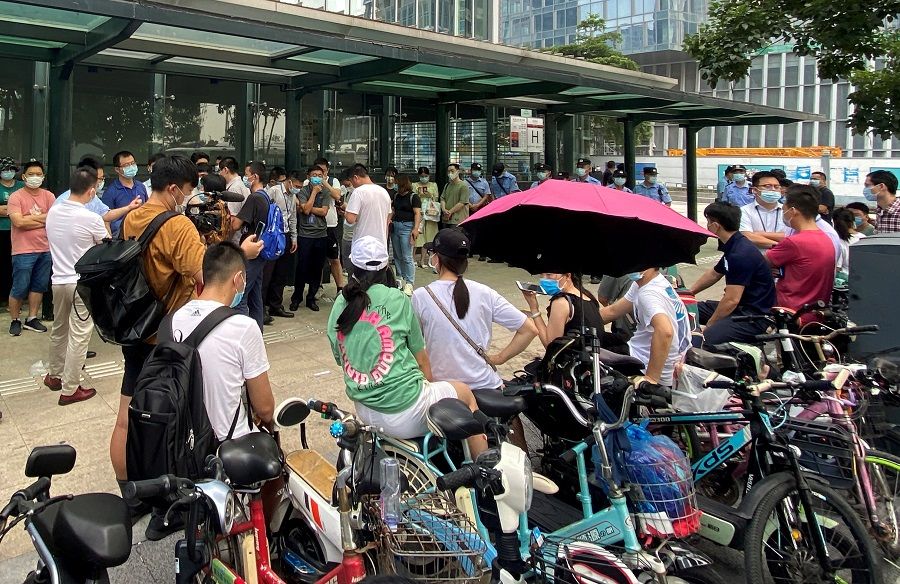
Citing people familiar with the matter, Bloomberg reported on 15 September that China's Ministry of Housing and Urban-Rural Development has told major banks that Evergrande is unable to make loan interest payments due on 20 September.
The public worry that Evergrande's debt crisis might trigger a subprime mortgage crisis in China and that a "grey rhino" - a serious and probable but overlooked threat - has appeared. If Evergrande sells its assets cheaply to repay its debts, market prices would be distorted and this could become the first domino that implicates other debt-laden real estate companies, in turn resulting in a series of financial, social and even political risks.
In fact, since Chinese regulatory departments introduced the "three red lines" last year, real estate companies have taken a big hit as it has become difficult for them to finance debt. At the same time, as officials have stepped in to curb soaring property prices, it is not easy for developers to cash out by destocking their property inventory.
Latest figures released on 15 September showed that national home sales values tumbled by 19.7% in August, showing the first signs of an inflection point in property prices. Other statistics have also reported a sharp increase in real estate non-performing loan ratios of most banks in the first half of the year, while some smaller developers are already presenting a serious default risk.
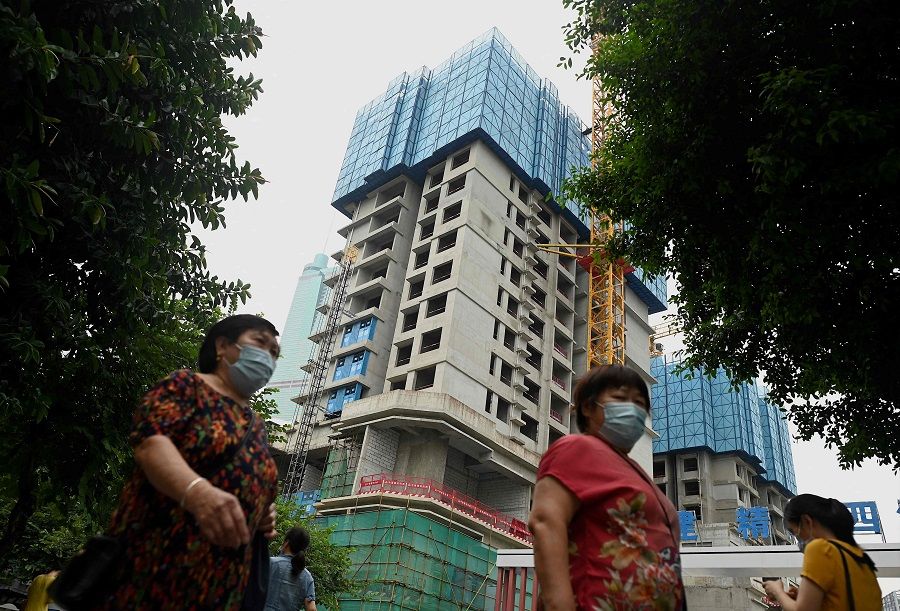
Logically speaking, the Chinese government, which emphasises stability and pursues omnipotence, will not sit back and watch Evergrande go bankrupt, especially since the government will strive to avoid all signs of financial turmoil and social instability prior to the commencement of the 20th Party Congress in 2022.
However, right now, most institutions and academics feel that Evergrande is a classic case of overleveraging that needs regulation, and the authorities will not easily throw it a lifeline.
This shows that the authorities are comfortable with the current property market and are not yet prepared to step in and rescue Evergrande.
Tracing the Evergrande incident, in the early years when the property sector in China was getting strong political support, it worked on a high-risk model of high debt, high leverage, high turnover, and low cost, and it grew rapidly as the gamble paid off. By 2016, the leaders were clearly emphasising that houses were for living in and not for speculation (房住不炒). As the winds changed, Evergrande's soft landing did not work out and it even tried to diversify and expand; it is tasting the bitter fruits today.
However, the authorities are clearly not too worried about the risks that the Evergrande issue might lead to.
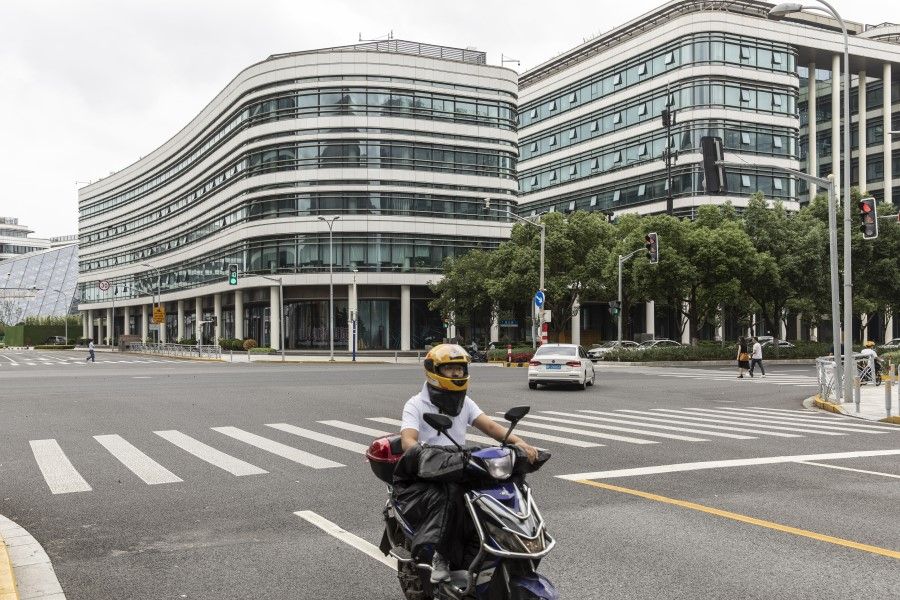
Letting Evergrande save itself
At a press conference by the National Bureau of Statistics (NBS) on 15 September, replying to a question about Evergrande's default risk, a NBS spokesperson simply said that some real estate giants have encountered difficulties in their operations, and the impact on the industry still needs to be observed. He added that various departments across China have adhered to the principle of houses being not for speculation since the beginning of 2021, and that the overall real estate market has been stable.
This shows that the authorities are comfortable with the current property market and are not yet prepared to step in and rescue Evergrande. Bloomberg reported that the Chinese government is assembling a group of accounting and legal experts to examine Evergrande's finances, which looks more like preparations for an orderly closure of Evergrande.
The authorities are calm because first of all, while Evergrande is deep in debt, its land reserves and assets are worth over 2 trillion RMB, and it is still able to repay its debts. The authorities are probably confident that it will be able to close down without getting in too bad a state and without sparking a severe financial and social shake-up.
...the current Chinese leaders are more interested in the quality rather than the speed of economic development, as well as sustainability, deleveraging and risk avoidance.
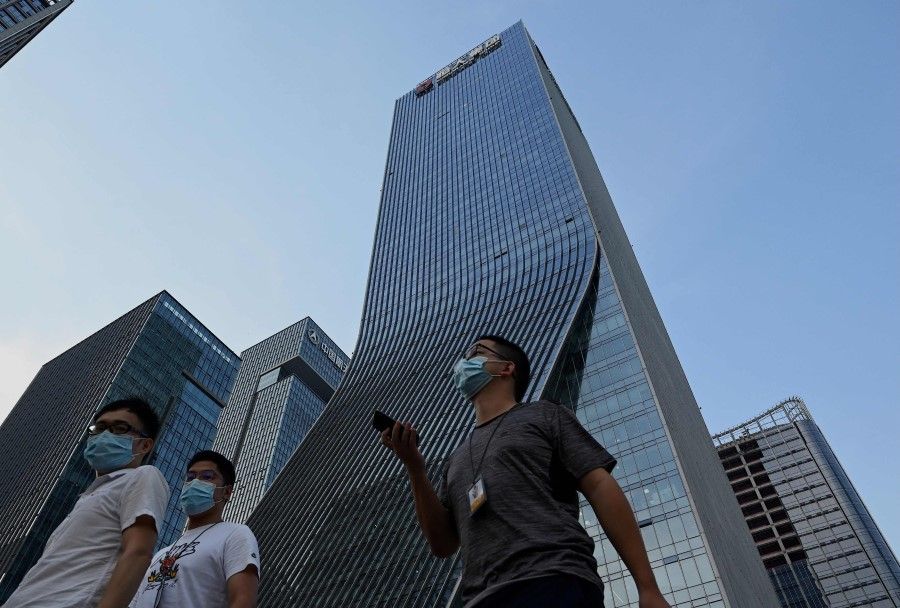
Secondly, the trend of recent years clearly shows that the current Chinese leaders are more interested in the quality rather than the speed of economic development, as well as sustainability, deleveraging and risk avoidance. To achieve that, they have come down strongly on the implementation of tightening measures in various areas. For decades before this, China's property companies were also borrowing too much money for expansion, and the authorities had long wanted to wean off reliance on property, to build a more sustainable and fair society.
In the face of these major aims, the authorities are not too concerned with letting some tycoons who are high risk-takers and potential rabble-rousers take some pain, including allowing certain controllable financial volatility, as seen from the authorities' lightning moves to regulate the technology and tutoring sectors. Perhaps sooner or later the authorities will have to intervene in the Evergrande crisis, but right now it is still "observing".
Besides, even if Evergrande is rescued, that does not mean rescuing its founder Xu Jiayin. Debt restructuring is unavoidable; property buyers might still be able to get their homes, but debtors will definitely make a loss. This might be an alert for other property companies, housing speculators, and investors in China.
